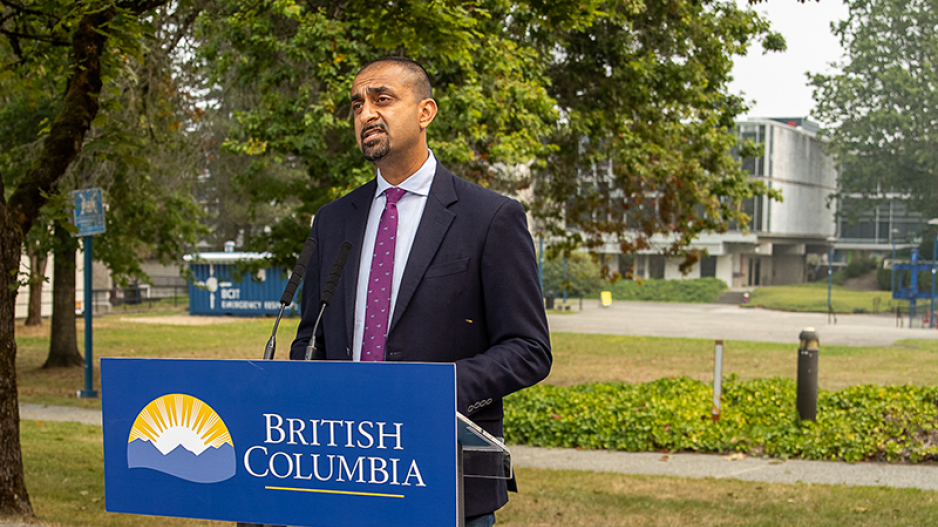Ten of 47 sa国际传媒 municipalities on the government’s so-called “naughty list” of communities that need to build more homes have been given their assignments.
The number and type of homes targeted for construction within the first municipalities that were announced as part of the Housing Supply Act have been released, according to sa国际传媒’s Ministry of Housing.
Housing targets:
- City of Delta: 3,607 units
- City of Kamloops: 4,236 units
- District of North Vancouver: 2,838 units
- District of Oak Bay: 664 units
- City of Port Moody: 1,694 units
- District of Saanich: 4,610 units
- City of Vancouver: 28,900 housing units
- City of Victoria: 4,902 units
- District of West Vancouver: 1,432 units
“The housing crisis is hurting people, holding back our economy and impacting the services we all count on,” said Housing Minister Ravi Kahlon in a statement. “We’re taking action and working with municipal partners to make sure more homes are built in communities with the greatest housing need. The targets include thousands of below-market rental units for the largest and fastest-growing communities. This means more people will be able find a home in the community they love.”
The 10 municipalities were selected in May 2023 as part of the Housing Supply Act. This allows the province to set housing targets that selected municipalities must build over the next five years.
In addition to number of units, each municipality has been given a list of housing target guidelines.
These guidelines break down the type of housing units municipalities should build, the number of rental units, the number of below-market rental units and units with on-site supports, according to the sa国际传媒 government.
Reactions from local leaders
Municipalities such as the City of Vancouver, City of Delta, District of Saanich, District of North Vancouver, City of Abbotsford, District of Oak Bay, City of Kamloops and the District of West Vancouver have expressed support for the housing targets but emphasized the need for provincial support.
Victoria Mayor Marianne Alto said in a statement she is pleased with the announcement but made no mention of supports needed from the province.
In an open letter to Kahlon, Delta Mayor George Harvie requested provincial support in the form of increased funding, expedited rezoning to allow for multiple units and refinements to the province’s methodology for tracking construction progress.
The province said it plans to evaluate municipalities after six months and check in yearly following that date.
Occupancy permits will be used as a key measure of progress, according to Harvie.
“While occupancy permits help to measure the availability of new units, they are an unsuitable measure of municipal actions to increase housing supply as they are contingent on other external factors such as construction delays, interest rate impacts and industry responses to the market environment,” Harvie said in the letter.
Harvie is not only local leader to emphasize the need for infrastructure supports. to increase infrastructure supports for housing at last week’s Union of sa国际传媒 Municipalities convention.
The province said it will continue the effort to speed up the housing approval process through digitization and an investment of $10 million for continued implementation of the Development Approvals Process Review.
Vancouver city manager Paul Mochrie said in a release that there are factors beyond the control of municipalities.
“These include access to funding and financing for market and non-market developers, high interest rates, increased cost of construction and availability of labour. While municipal governments, including Vancouver, cannot control many of the factors affecting completion of housing projects, we can control approvals and we are focused intensely on simplifying and expediting that process,” he said.
Glacier Media reached out to the City of Port Moody but did not hear back in time for publication.



